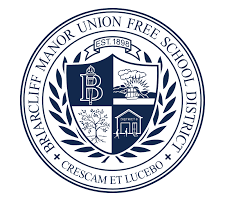
While on the road to college, it’s important to take time to reflect on student accomplishments and goals. It’s also important to take some time to review college admissions trends – what’s new, what persists, and are there any substantial changes that are important to take into consideration? This information can be pivotal in helping students prepare for the college admissions process. So, what are the trends for the coming year? Read on to learn more about trends and steps your child, particularly rising juniors, can take towards optimizing their college planning experience. And just maybe, the process itself can be one of growth and introspection along the way.
Trends to Consider
- Test optional continues
Test optional colleges do not require students to submit ACT/SAT test results. Approximately 1,800 colleges and universities have test optional or test-free policies per the National Center for Fair & Open testing. That said, higher test scores when submitted with a robust application do garner higher probabilities of admission.
- Top colleges receiving record number of applications
Competitive colleges received a high number of applications in 2022. Harvard University offered admission to 1,954 students out of 61,200 applicants (3.19% admit rate), Yale University had a 4.47% admit rate, Brown University 5%, and the University of Pennsylvania 4.4%. The list goes on indicating high numbers of applicants to top colleges. (Inside Higher Ed, Record Applications, Record Rejections, April 4, 2022, Scott Jaschik). Too many applications are ultimately bad for colleges, and students. We encourage a balanced list and one manageable in number.
- Early Decision applications are on the rise
Students who are applying early have skyrocketed per Robert Franek, The Princeton Review’s editor-in-chief. Per their Best Colleges list, 200 out of 388 have an early decision and/or early action option in the beginning of November. In addition, some schools offer another option, Early Decision II, which is due in January. Early decision is binding – if students are accepted through early decision, it is expected they will enroll in that college or university. However, used correctly, Early Decision can be a way to increase the chances of admission and possibly reduce the timeline of college applications.
- The personal parts of college applications have become increasingly important (essays, personal statements, activity lists).
Students’ demonstrated interests are important. For instance, essays are good examples of the student voice – a way for students to express their opinions, beliefs, and values.
- Course rigor continues to be important
APs and IBs are important because SAT Subject II tests have been eliminated permanently by the College Board. The tests were used to show evidence of course mastery – now that they’re gone, it’s better to take the course than self-study and test as it shows potential of success with college level content. AP tests are not for everyone, but, when possible, more rigorous content can allow one to learn deeply and be more ready for college, too.
Next Steps
It’s important for your child to focus on their narrative and to explore their areas of interest. The college admissions process is not a competition, albeit competitive, but is all about maximizing resources available to you for college and life. On the road to college, one must focus on the healthy growth of our children, focusing on areas of authentic interest, and helping them be accountable against the challenges of digital distractions. In doing so, the road can be one that helps students navigate toward the best fitting program enroute to exploring how to manifest a future that is much more interesting and exciting for them.
Tony Di Giacomo Ph.D. is an educator and founder of Novella Prep. He has 20 years of university experience in admissions, development, teaching, and research. Contact him at tony@novellaprep.com. novellaprep.com







